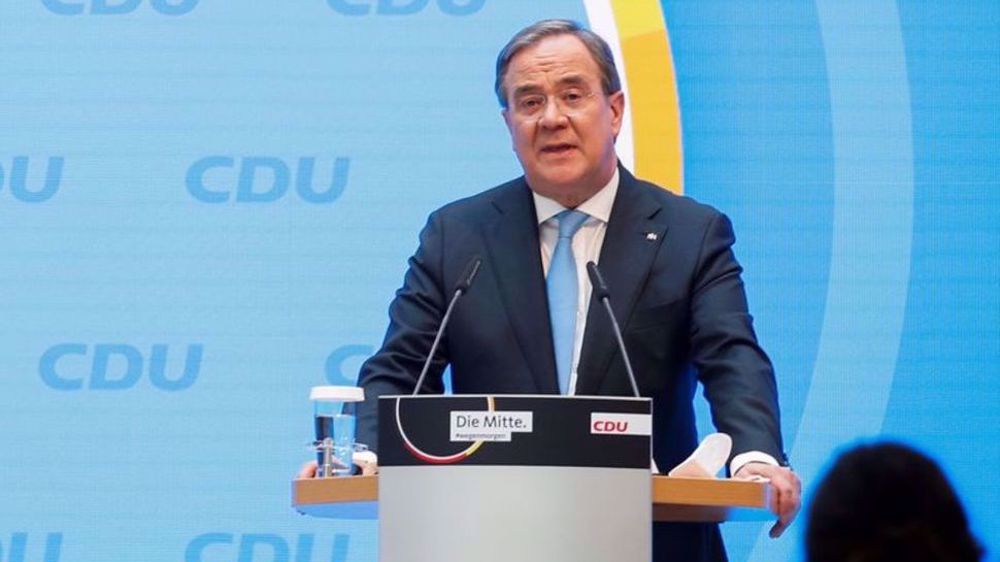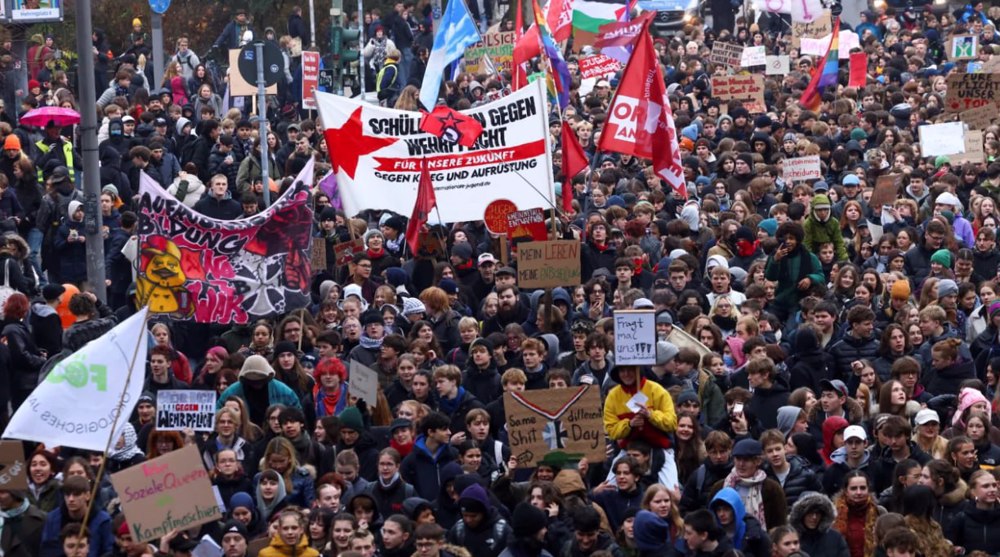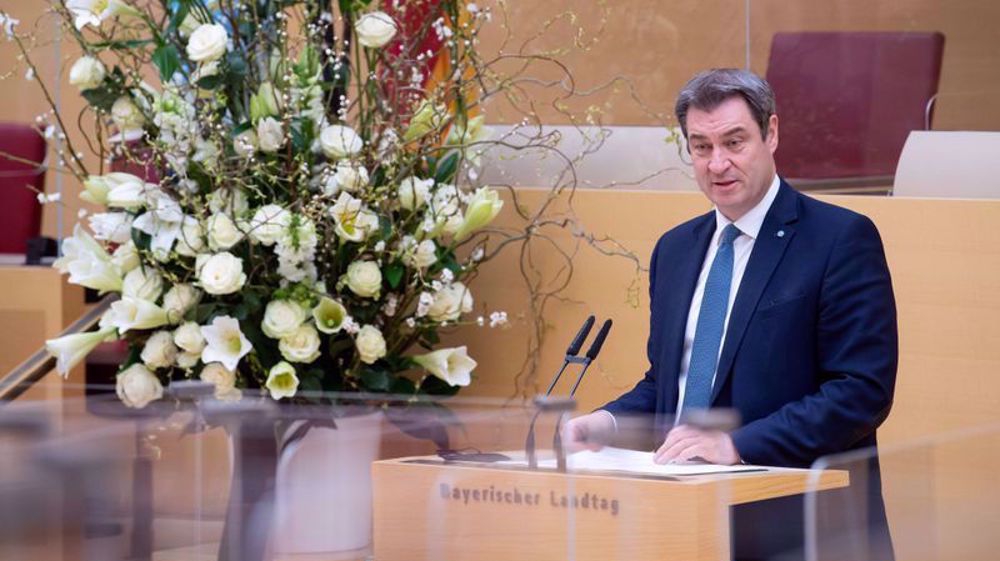German conservatives pick Armin Laschet as candidate to succeed Merkel
Germany's conservatives have decided to pick Armin Laschet, the leader of the Christian Democratic Union (CDU), as their candidate to succeed Angela Merkel as chancellor in the country's upcoming elections.
The development comes as Markus Soeder, leader of Bavaria's Christian Social Union (CSU), has conceded defeat in his week-long battle with Laschet to lead their alliance — dubbed the Union — into the September 26 elections.
Soeder's decision came after senior CDU members backed Laschet, 60, at a tense meeting on Tuesday.
The conservatives have long been pressing for a quick decision on whether to choose Soeder or Laschet as their chancellor candidate in the upcoming general elections.
"The die is cast. Armin Laschet will be the Union's candidate for chancellor," Soeder told reporters in Munich. "In the name of the CSU and personally, I wish Armin Laschet success for the difficult task that lies ahead of him and offer him the support of the CSU."
Laschet is a leading centrist and is generally regarded as a candidate who will carry Merkel's legacy forward, but he has had a squabble with Merkel over coronavirus restrictions.
His chaotic handling of the crisis harmed his reputation as the premier of North Rhine-Westphalia.
On the other side, Soeder, 54, is a savvy politician who has supported Merkel during the pandemic.
Meanwhile, Laschet, who faces an uphill battle to win over voters, has urged the conservative bloc to unite.
"The CDU will not win this election without the CSU, and the opposite is also true," he told a news conference on Tuesday.
"I want to start a new chapter after Merkel, not just more of the same, but we will preserve the part that has done Germans good," he added.
Angela Merkel has led the conservatives to four victories, and now they are wary of contesting the federal elections on September 26 without her.
Merkel has said she will not stand for a fifth term and will retire from politics after 16 years at the helm of Europe's top economic power and the EU's most populous country.
She has not stated whether she will endorse any candidate, though she has hinted that she will support the CDU leader.
Her departure will mark a new, less certain phase in German politics and at the heart of the European Union (EU), whose rotating presidency Merkel currently holds.
Analysts believe Laschet would not be able to match her commanding position, built up over 16 years, on the international stage.
"In terms of foreign policy, Angela Merkel leaves big shoes for her successor to fill," said Thomas Gitzel, economist at VP Bank. "Armin Laschet will not be able to fill them and probably won't want to. The future focus will be on domestic policy."
Meanwhile, the Greens named their co-leader Annalena Baerbock on Monday as their first candidate for chancellor in the party's 40-year history.
Baerbock, who has promised change if she becomes chancellor, congratulated Laschet on his candidacy in a post on Twitter.
However, she added, "I'm counting on a fair election campaign for the leadership of this country."
CDU/CSU loses majority support after Laschet named chancellor pick
Separately on Tuesday, an opinion poll by the Forsa Institute, one of the leading market research and opinion polling firms in Germany, revealed that the CSU and CDU had seemingly fallen out of favor with voters after the latter chose Laschet as Merkel's successor.
According to the poll, the CDU/CSU has lost six percentage points since April 14 and has fallen behind the Greens.
The block currently polls at a mere 21 percent, some 11 points less than its previous federal election result back in 2017. At that time, the 32.9 percent received by the union was not considered a particularly strong result either.
The Greens, however, apparently have gained momentum over the last week. The popularity of the party rose from 23 to 28 percent, up from a mere 8.9 percent in the 2017 elections.
For the first time, the Greens now have a chance to become the strongest party in the German parliament, the Bundestag, potentially propelling their top candidate to chancellorship.
The candidates' personalities could play a more decisive role in this outcome, according to the poll.
The latest Forsa Institute poll, commissioned by the German RTL media group, was based on interviews with 1,502 people surveyed on April 20.
Iran parliament probes missing $6.7bn in oil export revenues: MP
Saudi-backed coalition vows to counter UAE allies in Yemen
VIDEO | Heavy rains, flash floods leave Southern California homes caked in mud
‘He chose to save lives’: Netizens rally for Gaza doctor’s release after a year in Israeli jail
US uses Iraqi airspace to spy on Iran, says Iranian ambassador to Baghdad
Iran facing ‘all-out war’, stronger than before June war: President
Iran’s headline inflation up 1.8% to 42.2% in December: SCI
Rights group: Israel expediting settlements legalization to block Palestinian state













 This makes it easy to access the Press TV website
This makes it easy to access the Press TV website